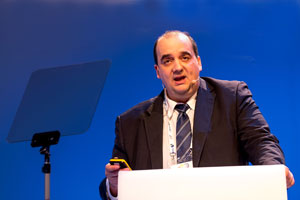Hong Kong study ‘ridiculous’

Konstantinos-Farsalinos

Konstantinos Farsalinos of Onassis Cardiac Surgery Center in Greece questioned the validity of a Hong Kong Baptist University (HKBU) claim that the level of polycyclic aromatic hydrocarbons (PAH) in e-cigarettes is a million times higher than that in roadside air.
The HKBU study, commissioned by the Hong Kong Council on Smoking and Health, examined 13 types of e-cigarettes and reported that the level of PAHs in the devices ranged from 2.9 to 504.5 nanograms per milliliter, which HKBU’s assistant professor of biology Chung Shan-shan said is “at least one million times more than roadside air in Hong Kong.”
The level of poly-brominated diphenyl ethers (PBDEs), a flame retardant used in furniture and electronic products, ranged from 1.7 to 1,490 ng/mL, compared with the PBDE level of 5.6 to 6.3 ng/mL measured in samples of regular cigarettes.
Farsalinos pointed out that PAHs are released from burning substances like gasoline or tobacco, but there is no combustion in e-cigarettes.
Looking at the numbers given in the HKBU study, Farsalinos said a 1998 paper from the Hong Kong University of Science Technology found PAH levels at up to 48 ng per cubic meter or 1 million mL of air, meaning that the HKBU researcher compared milliliters of air to milliliters of e-liquid, which Farsalinos said is “simply and outrageously ridiculous.”
Farsalinos added that since the average volume of air that humans breathe daily is about 20 cubic meters or 20 million mL, outdoor air in Hong Kong would result in total daily PAH exposure of 960 ng.
Given that an average vaper consumes 3 mL of e-liquid according to Konstantinos’ 2014 study, and assuming that HKBU’s measurements of PAHs in e-cigs are correct, the daily PAH exposure from e-cigarettes would be about 9-1500 ng, or a range between 99 percent less and 50 percent more than exposure to outdoor air, making the HKBU’s claim “completely false,” Farsalinos explained.